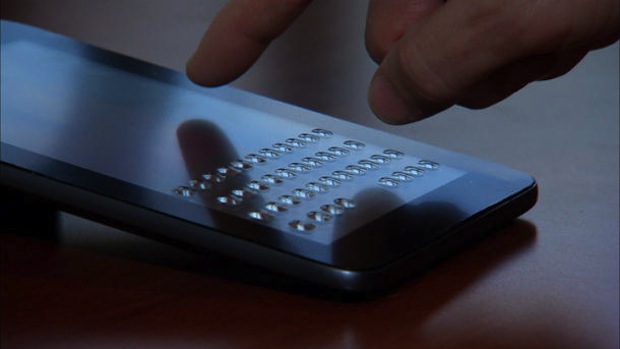New Tech Mimics Old Feel

While most would agree that today’s smartphones are a tremendous step forward in evolution from the comparatively limited technology found in flip phones of the past, one thing seems to have been lost from those old designs – tactile feedback.
Anyone who uses a smart device is familiar with the difficulty involved in using a small touch keyboard. The lack of tactile feedback as formerly provided by the hard buttons of old-style flip phones and computer keyboards basically messes with our heads. On top of that, it makes the typing of a text – something often doable on older phones without more than a second glance – is now something requiring almost complete attention. And even so, with eyes fixed upon the little keyboard on the tiny screen, it’s still very easy to hit the wrong key due to being off by a fraction of an inch.
This problem is something a company named Tactus is aiming to solve with a new kind of case and screen technology.
Currently available only as a special case for a specific version of the iPad, and only at a specific orientation, this technology uses pressurized fluids that fill tiny bead-shaped modules placed strategically across the screen. The result is a series of little nubs that rise up from the screen to guide searching fingers to the keys. Of course, this technology does little to provide true tactile feedback for the act of typing, and requires at least the muscle memory to know vaguely where the given keys are, but it’s a step in an interesting direction that Tactus wishes to further explore.
In the very near future, Tactus will unveil a similar case for the iPhone 6 Plus. However the more interesting development underway is their prototype Android phone with this technology built into the screen itself.
While this technology doesn’t actually offer the level of tactile feedback of something like a Blackberry keyboard or the physical keyboard some smartphones offer, it’s the implications of this technology’s development that are profound.
After years of complaints from users about touch technology not being what it’s cracked up to be, technology companies seem to be taking it to heart – at last.
